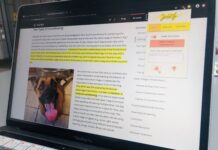Some students face difficulties when looking for a co-op position and wanting to ensure that an employer is reputable, and more importantly, safe.
The Workplace Safety Insurance Board (WSIB) has a tool that’s used for precisely that.
The WSIB is one of the largest insurance organizations in North America, covering over five million people in more than 300,000 workplaces across Ontario.
The companies range from small businesses with one to 20 employees, to large businesses with over 300 employees.
The WSIB created a tool called Safety Check this year which shows detailed statistics on workplace injuries by company.
These statistics include injury rates per 1000 employees, number of lost hours, and most common injury types, among others.
These injury types include both physical injuries, sorted by the injured body part, as well as non-physical sources of distress such as chronic mental stress.
Information about past insurance claims associated with that employer and benefits the employer may be handing out from past injuries are also included.
Imprint collected a list of the most common and most recent UW co-op employers and used WSIB’s Safety Check to see how the companies’ fared on safety.
From this list of employers, there were some workplaces that Imprint could not find on the database.
Every co-op workplace that was on the database had injury rates below the industry means, with the exception of SNC-Lavalin, Geotab and Intuit, which were 0.05 and 0.02 injuries per 100 full-time employees above the mean for their industries respectively. The past sources of injuries for these companies consisted mainly of vehicle accidents for SNC-Lavalin and falls for Geotab.
One limitation to the WSIB’s safety check is that some workplaces are not registered with the WSIB, which was the case for many of the University’s potential co-op employers.
While some companies such as manufacturing and construction companies must register, other types of companies such as those that provide financial and banking services do not. There are some companies with the same name, which is a potential cause for concern.
Also, some companies may not have full information available to them because they are Schedule 2 companies.
This means they are individually responsible for injury and workplace costs. Therefore, the WSIB does not have insurance information about them.
“When an injury or illness happens on the job, we move quickly to provide wage-loss benefits, medical coverage, and support, to help people get back to work,” Public Affairs Manager Christine Arnott said, when asked about the WSIB’s purpose and goals.
“Funded by businesses, we also provide no-fault collective liability insurance and access to industry-specific health and safety information.”
Arnott recommends checking a potential employer’s safety statistics before starting work with them.
“Knowledge is power, and armed with this information, students can start a new position feeling more prepared, knowing the right questions to ask or to request additional training if needed,” she said.
As for future steps, the WSIB are constantly working on creating new tools to enhance how they share data, not only on the Safety Lookup, but also on one of their other tools, Compass, which provides information to individual business leaders.
Arnott hopes that these tools will allow them to make Ontario the safest place to work. “With access to this type of data, business leaders will be able to make more informed decisions to improve their health and safety performance and return-to-work outcomes,” Arnott says about the new upcoming changes to Compass.
































